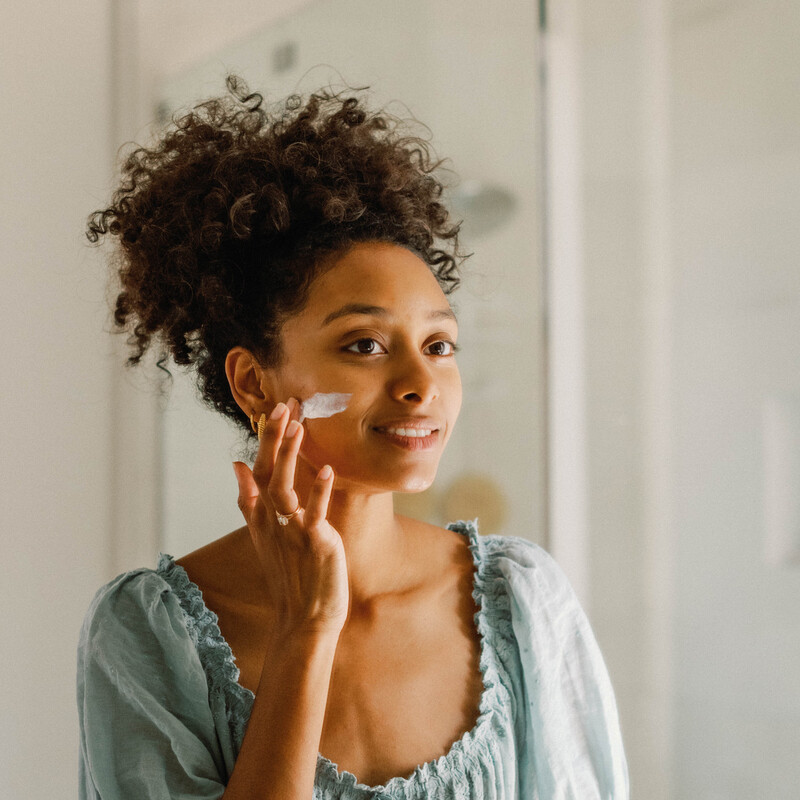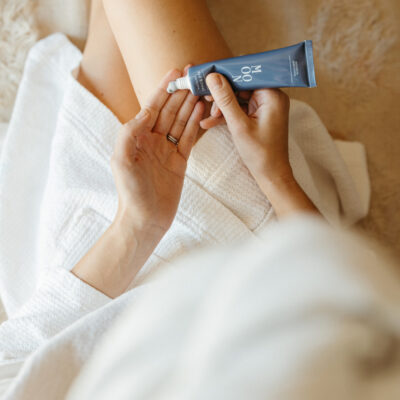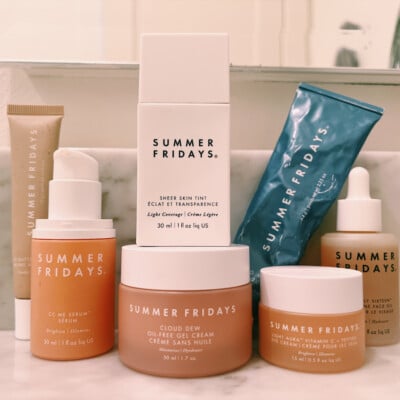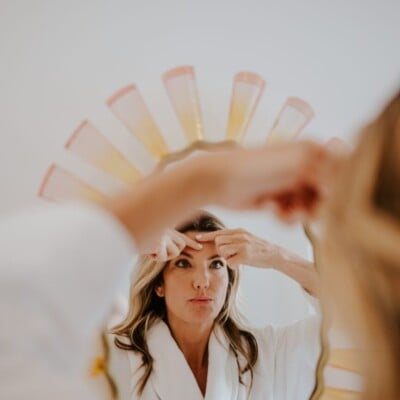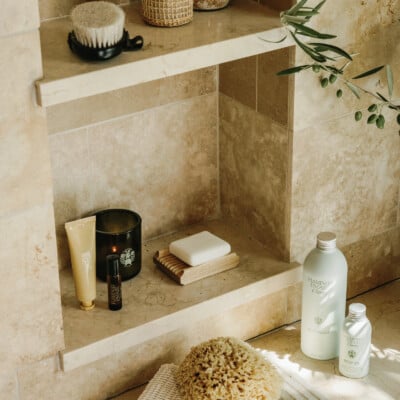If you think everyone is getting Botox, you’re not alone. The once-taboo treatment is no longer the stuff of secrets. People are more empowered than ever to talk about what they’re getting done—from fillers to procedures—instead of secretively ducking into med spas with shame. Aesthetic touch-ups are way more accessible, and in many cities, you can get a shot of Botox before brunch on the same block. What’s more, as a culture, we’re way more accepting of high-maintenance routines and so-called “vanity” treatments.
On the one hand, it’s encouraging that people are way less judgemental about what others choose to do with their faces. Transparency for the win! On the other hand, the ubiquity of so-called preventative treatments like Botox, filler (or filler alternatives), and complex facials can make them seem almost compulsory. Here at Camille Styles, we support doing what feels right for you. But even so, I’ve begun to wonder: am I falling behind? Do I need injections? Or, in the battle of retinol vs Botox, can I get away with an elaborate skincare routine?
Featured image from our interview with Sanetra Nere Longno by Michelle Nash.
A Dermatologist’s Tips for Choosing Retinol vs Botox
As with any solution promising to deliver eternal youth and keep your precious collagen reserves intact—or at least, make it look like they are—the best time to start was yesterday. Cue: preventative treatments.
And when it comes to reducing wrinkles and fine lines, as well as promoting skin elasticity, retinol and Botox are the two top contenders. Both promise more youthful-looking skin in different ways.
But how can you truly know if retinol or Botox is best for you? The answer, as it is for most skincare woes, is to speak to your dermatologist. To unpack the truth about retinol—is it as good as skincare TikTok claims? Can retinol really reverse wrinkles?—and allay some of my fears about Botox, I spoke to Dr. Rachel Reyes-Bergano, the Medical Director of SkinSpirit Pasadena.
Known on Instagram as “Dr. Rachel Injector,” Reyes-Bergano is an expert at creating natural-looking results in her practice and creating a patient-first experience. But even this magic-fingered injectable administrator is a lover of retinol. So with expertise in the retinol vs Botox debate, Dr. Reyes-Bergano is weighing the pros and cons of both treatments to help you decide which one might be right for you. Spoiler alert: the answer might be both!

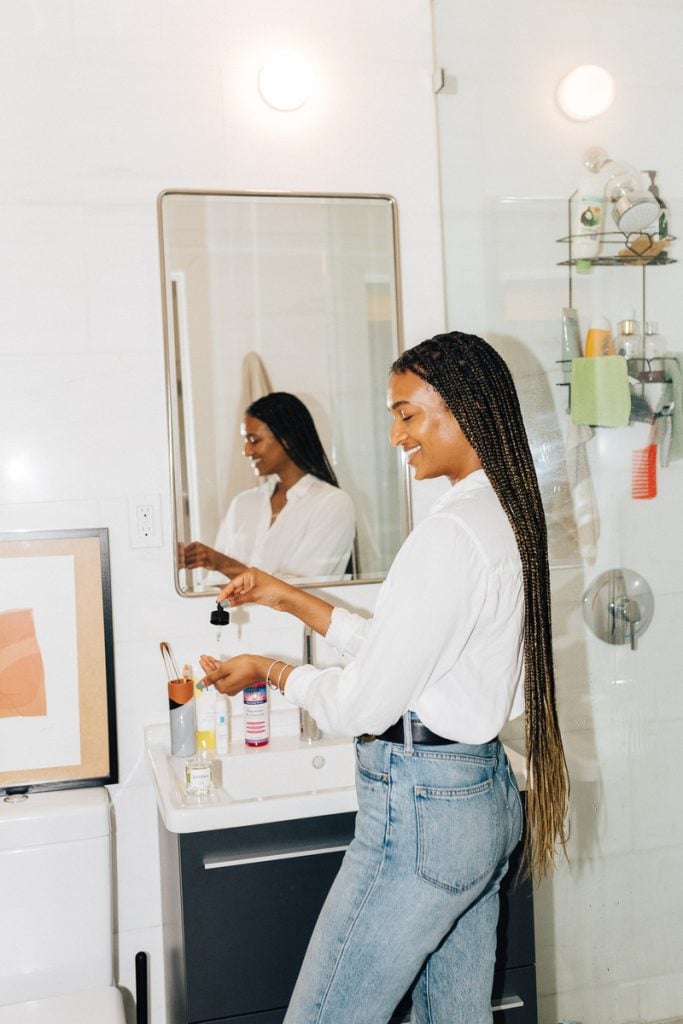
What is Botox?
Botox is an injectable that paralyzes the muscles in the treatment area to reduce the appearance of wrinkles, fine lines, and more. Most commonly used by the eyes, forehead, and lips, Botox gives the impression of firmer, tighter skin.
One of the most common misconceptions about Botox is that it’s permanent. It’s not! This can be great because it means it’s not a forever commitment. But it also means you have to get periodic touch-up treatments (usually every few months) to keep up with the results. And with an average cost of $150-$300 per treatment, this can get pricey.
Botox Benefits
Reyes-Bergano shares that Botox Cosmetic is a type of neurotoxin that will help stop muscle contraction in areas injected to make skin look smoother. “Botox works on dynamic wrinkles (those that are most pronounced upon facial expression),” she says, noting that “results take about 10-14 days to set in.”
She continues, saying that “Botox Cosmetic is FDA-approved for forehead wrinkles, the Glabella region (in between eyebrows), and the crow’s feet area (around the eyes). There are several off-label areas that are commonly injected in clinical practice: to slim down the lower face, help with teeth grinding/jaw clenching, reduce chin dimpling, and improve nostril flaring.”
Best Candidates for Botox
The good news, according to Reyes-Bergano, is that “Botox is for almost anyone looking to treat but also prevent wrinkles!” Of course, it’s important to “seek proper consultation from your physician” to confirm whether or not Botox will best support your skincare goals. So long as you’re not pregnant, nursing, or have any history of neuromuscular disorders, Reyes-Bergano says you may be a good candidate for Botox.

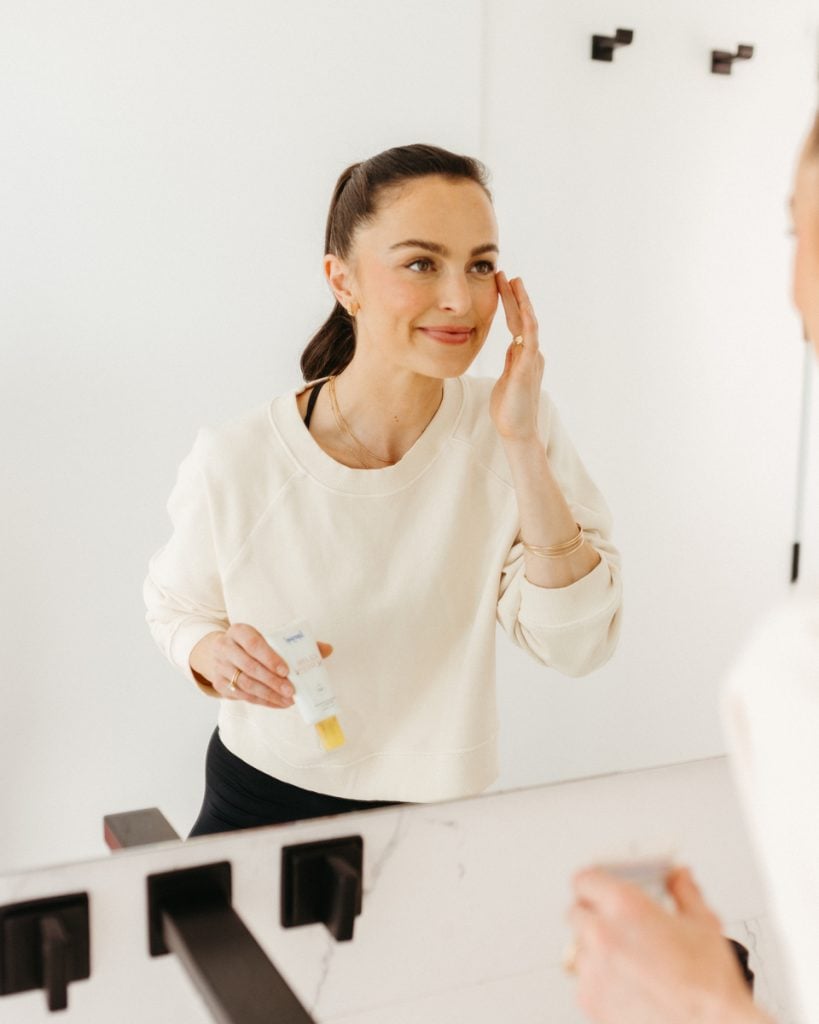
What is retinol?
Retinol is a vitamin A derivative that has the potential to be one of the most powerful ingredients in your skincare routine—but only if you use it right. Retinol works by increasing cell turnover to boost collagen and skin elasticity, essentially revealing a new layer of skin and turning back the clock on your whole face.
Perhaps that sounds too good to be true. Spoiler: it’s not! But the key is in your consistency. Retinol works over time, and prescription-strength retinoids can even come with a “purge” during which you experience more breakouts. (It has to get worse before it gets better, right?)
But with consistent use and patience, retinol has almost miraculous results. You can get a prescription for tretinoin or other retinoids for about $120 per 20-gram tube, which lasts a few months. For an easier-to-swallow sticker price, you can get over-the-counter options with lower concentrations of retinol. These take longer to work but still give you the same benefits.
Best Candidates for Retinol
Reyes-Bergano notes that retinol, with consistent use, keeps our skin looking smooth and firm. And luckily, almost anyone is a good candidate for retinol’s magical benefits. “Anyone who is not pregnant or nursing can use retinol for its skin benefits as long as sunscreen is used daily.”
The Truth About Retinol and Wrinkles
According to Reyes-Bergano, “Retinol works to improve the appearance of fine lines in conjunction with daily SPF to protect against UV damage which will prevent further wrinkles.” The nuance here is that retinol “does not work on wrinkles that occur with dynamic muscle movement (facial expression).”


What is more effective: retinol or Botox?
As I foreshadowed earlier, for many people, retinol used in conjunction with Botox treatments could be your best bet. Reyes-Bergano confirms my hypothesis, saying that “each product does a different job and the two together are synergistic. Retinol works overtime to stimulate collagen to give smoother, firmer skin while Botox helps to relax muscles that are causing the skin to wrinkle.” So, depending on your goals, Botox and retinol can target and support the skin in different ways.
But Reyes-Bergano emphasizes again that when it comes to Botox (and retinol, for that matter) consistency is key. “Preventative Botox is only beneficial if you plan on keeping up with maintenance touch-up doses. From many years of clinical trials, it is recommended to return for Botox touch-ups at least three times a year.”
Are there any side effects of preventative injections?
Reyes-Bergano proceeds with caution when roping in the term “preventative” with Botox injections. “Sometimes, consumers are under the impression that if you are a young patient, you don’t need the full recommended dose. However, it’s important to remember that injectors treat or dose based on the strength of your muscle and not your age. I have had some patients in their early 20s with stronger Glabella muscles than a naive Botox patient in their 50s.”
The Takeaway
So, can you receive Botox treatments and use retinol as well? “Most definitely!” encourages Reyes-Bergano. In fact, she recommends that all of her Botox cosmetic patients use retinol between treatments. For soft, smooth, and ageless skin, pairing the two together is oftentimes your best bet.

